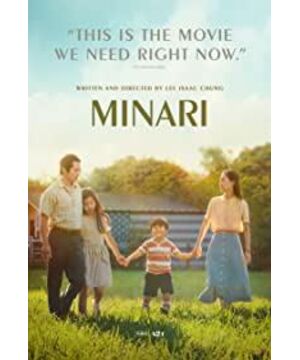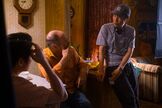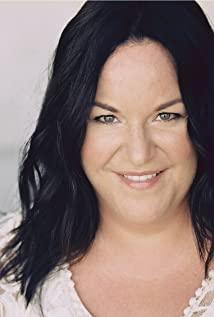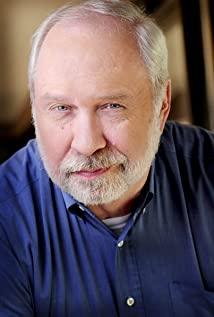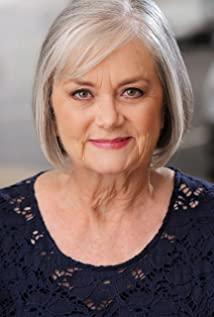In the United States in the 1980s, Jacob Yi (played by Steven Yeun), a Korean-American man, moved from the familiar West Coast to the remote and unfamiliar state of Arkansas with his wife and a pair of children. The husband bought a piece of land and insisted on realizing his dream of farming here. . .
Based on director, Lee Isaac Chung, who grew up in rural Arkansas as a child, the film includes the struggles, bitterness and joy of his parents as first-generation immigrants. Director Yishuo Zheng, who was originally from Yale University and majored in ecology, dropped out in his senior year and transferred to the University of Utah to major in film production.
The huge American flag on the movie poster seems to tell the story of Asian immigrants pursuing the American dream. The film was produced by an American independent film company (PlanB and A24), with a Korean-American director and some actors, but it was able to represent South Korea at the Academy Awards and Oscars to compete for the "Best Foreign Language Film" award/nomination. The reason, I am too lazy to pursue. Maybe the American Dream highlighted by the poster is just a way of propaganda?
Looking at his films, in fact, the director puts more emphasis on the joys, sorrows and struggles of the family. The film touches on many sensitive topics: for example, the heroine in the film grumbles that she cannot find a church with a majority of Koreans in this barren land, and her Korean colleague reminds her knowingly: the Korean who came here People mostly try to escape this kind of church. The two are tacit, and the film does not explain much; when it comes to the issue of racial discrimination, the film obstinately avoids talking about it. Only the prejudice of white people is shown here. The little Korean boy in the film is quickly accepted by white children and provides a safe haven for them when necessary. Maybe the director believes that "everyone is a good person"? But in the face of the rising discrimination against Asian Americans in the United States at this time, is the movie "just in time" or "missed opportunity"? I have to think that this is an intentional/unintentional arrangement, perhaps a political consideration: in order to please the US market, Oscar Bait?
I have to say that the plot of the movie is actually very 'pleasant'. The film centers on the youngest in the family, David (Alan S. Kim), a cute little boy with a heart problem, and it wins a lot of hearts. Although some plots are still suspected of 'playing' (life is getting better, why is the wife still angry with her husband?), the actors all performed brilliantly, but they were all robbed by the mother-in-law (Yin Ruzhen) and the young boy Sun. play. During the daytime scenes of the film, the scenes were all sunny and full of golden powder; however, some scenes at night were shot in darkness: a scene in which a mother-in-law and her little grandson discuss heaven and hell in the dark, the actors Acting like a person with a good temperament, but only hearing his voice and not seeing his shadow, wasting the actor's performance in vain. I don't know if it was the intentional or unintentional fault of the production team?
In the movie, the male protagonist is named Jacob (in the Old Testament, according to legend, he used tricks to his twin brother and fought with God.), the son's name is David (this is a petite shepherd, but has the courage and resourcefulness to defeat the huge enemy, And then became the king of Israel.), I wonder if there are any metaphors borrowed from the characters in the Bible? I didn't expect the movie to end like this, maybe it's for surprise, right?
The movie has an open ending. Apart from believing that this family can go through this hurdle again, I really can't think of anything else.
8.5/10
#Minari #minarimovie
# Minari# Dreamland #Agricultural Home #미나리 #Water celery
#film review # review
View more about Minari reviews


